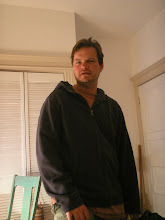

Things have gotten busy at work, so I hardly noticed that this last week was one of the biggest holidays in the Islamic calendar, Al Eid. I saw that we got a five day weekend, so I looked into flights to Turkey or Lebanon, but it seemed pretty expensive considering two of those days would be travel. Then, last Thursday, we got an email saying classes were canceled for the other two days of the week, creating a ten day holiday- enough time to go almost anywhere in the world. But, with one day's notice, plane tickets were now extremely high. After a bit of research, I realized that Gulf Air works like a bus- you always pay the same price as long as a seat is available in that class. Since I was flexible, I booked a cheap flight to Oman, a country I never really thought twice about before. It turns out that since the Islamic calendar is linked to the lunar cycle, it's impossible to know the exact dates of some festivals until they get officially declared.
The Lonely Planet website seemed disappointed in the changes since Oman had been discovered. This was news to me, but briefly looking at the map, I realized the huge expat community in the United Arab Emirates would be able to drive directly into Oman, bringing globalization with them. I flew into the capital, Muscat, which would be an unnecessarily long drive from the border, so I ran into relatively few Westerners. Like Bahrain, however, most people on the street and working were actually Indian, who provide most of the service economy's labor in the Gulf States. I assume most of the Omani people were celebrating Eid with their family, not in tourist areas.
Lonely Planet did have another great suggestion, which was to camp there. By Bedouin tradition, you can camp anywhere that is not clearly marked as private land, including most beaches and roadsides. So I went to Carrefour (that's French for Wal-mart)and bought a tent and sleeping bag for the cost of one night in a hostel.
When I landed, I asked the rent-a-car guy where the nearest place to camp was. He had never heard of such a thing, so he asked the guys next to him, and they suggested getting a hotel. So, I just picked up the free map, saw where the mountains were and started driving. I turned onto secondary and then tertiary roads where the streetlights ended, and just set up roadside. I woke up to the sound of goats. A herder was working them towards me, so I broke camp and headed back into town. After a day of sight seeing, I tried to head out in the opposite direction, but got repeatedly turned around. It turns out that all roads do, in fact, lead to Muscat. Eventually I found my way into the mountains and set up at a very lonely campsite, only to be woken up by a very large animal roaming the field. It sounded like a bull, but I decided to sleep in the car for the rest of the night just to be safe.
On the way back into town, I turned into a small village by the sea and came upon a guy butchering a cow right on the street. There were at least ten children watching the bloody mess (American, not British sense). An hour later, I came upon people butchering goats in a park. I only found out later that Eid is traditionally celebrated by slaughtering an animal and sharing the meat with the rest of the community. Muslims, like Jews and Christians, trace their heritage back to Abraham, so Eid is actually the celebration of his willingness to sacrifice his son Isaac to God. It's celebrated by Suni, Shiite, and Sufi alike, and is thought to be the best time to make the pilgrimage to Mecca and Medina, so pretty much everything shuts down for a week or so.
I spent the last night on a public beach on the outskirts of town. It was so crowded when I arrived that I had to backpack my gear in about a kilometer. It was nice to camp near other people, and the sand was a lot softer than rocky desert, but there was something quite magical about the empty back country of Oman. I'll certainly try and go back before my time here is over.













 Our enrichment week was to visit Delhi and the Taj Mahal. We arrived late at night in the backpackers section of town. The next morning we were awoken by the pandemonium that is city life in India: lots of mixed pedestrian/motorcycle/car traffic in every direction, noise, and dust.
Our enrichment week was to visit Delhi and the Taj Mahal. We arrived late at night in the backpackers section of town. The next morning we were awoken by the pandemonium that is city life in India: lots of mixed pedestrian/motorcycle/car traffic in every direction, noise, and dust.






